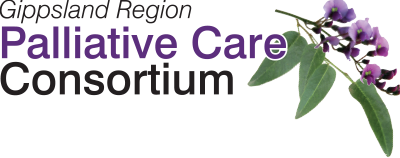
People with Learning Disabilities
Planning for care in people with learning disabilities
-
The Breaking Bad News website provides unique and flexible guidelines that can be used by practitioners, families and carers to ease the process of breaking bad news to people with intellectual disabilities.
Click here to visit the Breaking Bad News website.
-
Like everyone else, people with learning disabilities need to be able to acknowledge their loss and be able to mourn when someone close to them dies.
In this 15 minute film, people with learning disabilities tell their stories and share their wishes to support other people with learning disabilities in becoming more comfortable talking about dying, death and bereavement.
Click here to watch this film.
-
Many people from different backgrounds face similar barriers to talking about dying. PalliAGED provides a list of some resources that can be useful for people living with intellectual disability.
Click here to visit the PalliAGED website.
End Of Life Care in people with learning disabilities
-
Everyone will come to a dying phase of their life at some point. The End of Life Care section provides information and resources from a personal, professional and family perspective, to support people with a learning disability at this difficult and often challenging time.
Click here to access ALDHC End of Life Care information.
-
Dementia Australia explains what is currently known about this link, and discusses the diagnosis of Alzheimer’s disease in people with Down syndrome and some information about where to find additional support.
Click here to visit the Dementia Australia website.
-
PCPLD Network brings together a range of resources for people with a learning disability and carers working for the benefit of individuals with learning disabilities who have palliative care needs.
Click here to visit the PCPLD website.
-
Southern Metropolitan Region Palliative Care Consortium has developed a suite of fact sheets for for disability services staff working in group homes
• Care planning for palliative care
• Advocating for people with a terminal illness in a group home
-
Talking End of Life ...with people with intellectual disability (TEL) shows you how to teach people with intellectual disability about the end of life.
Click here to access TEL resources.
-
TEL is designed for disability support professionals (DSPs) but is also helpful for others including families, health professionals and educators. Some information could also be accessed by people with intellectual disability.
These 12 modules provided by Talking End of Life (TEL) are designed around a suite of 3 topics: How do I do this, Teaching how to understand end of life and Teaching the planning options.
Click here to access the 12 modules.
Grief, loss and bereavement in people with learning disabilities
-
Sensitive support is crucial to anyone who has experienced loss and bereavement. The Access to Learning Disability Healthcare website contains information, resources and tools about loss and bereavement support specifically for people with a learning disability.
Click here to visit the access to Learning Disability Healthcare resources.
-
This one-hour webinar will explore a range of issues related to disability and grief. There will be the opportunity to refresh your understanding of grief theory and key concepts and then apply these to the wide world of disability.
Click here to view the webinar
-
When people with learning disabilities are bereaved, their grief is often unrecognised and unsupported. The Sudden website provides guidance on communicating with people with learning disabilities after a death, and advice about how to support them.
Click here to visit the Sudden website.
Useful Websites
-
Inclusion Australia is the national peak body for intellectual disability.
They are the trusted and authentic national voice for people with an intellectual disability and their families.
They provide expertise and advice to Federal Government and other organisations to drive systemic change in Australia.
Click here to visit the Inclusion Australia website
